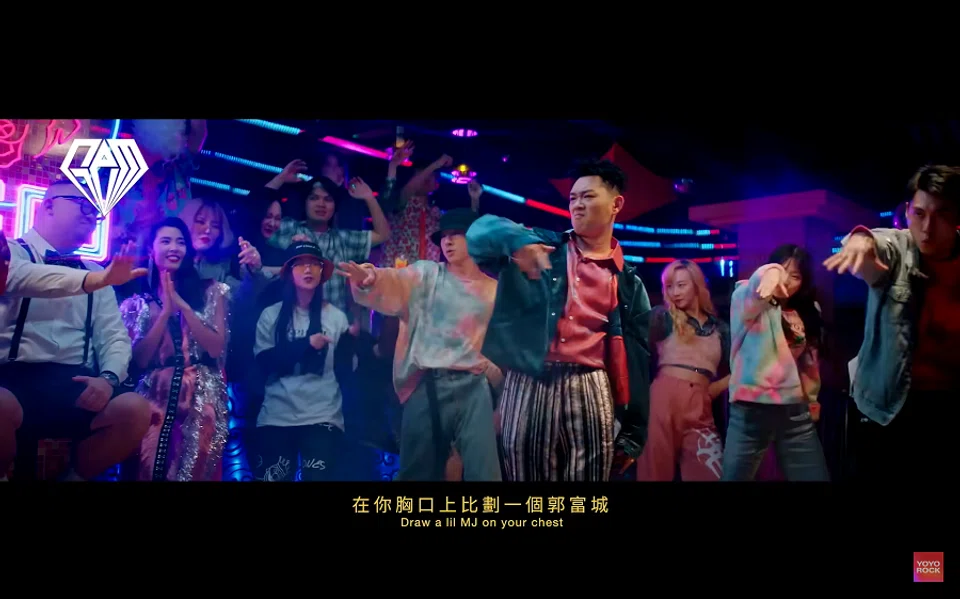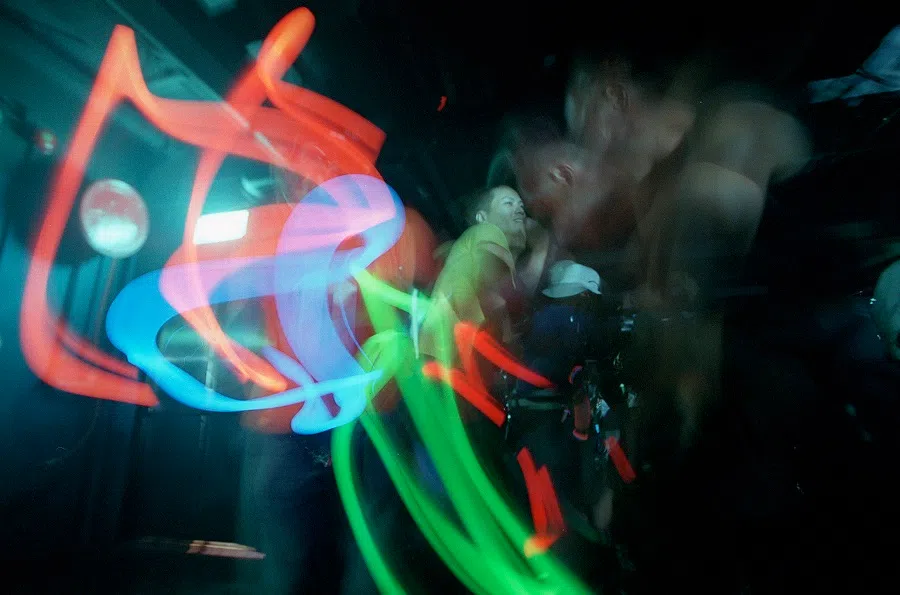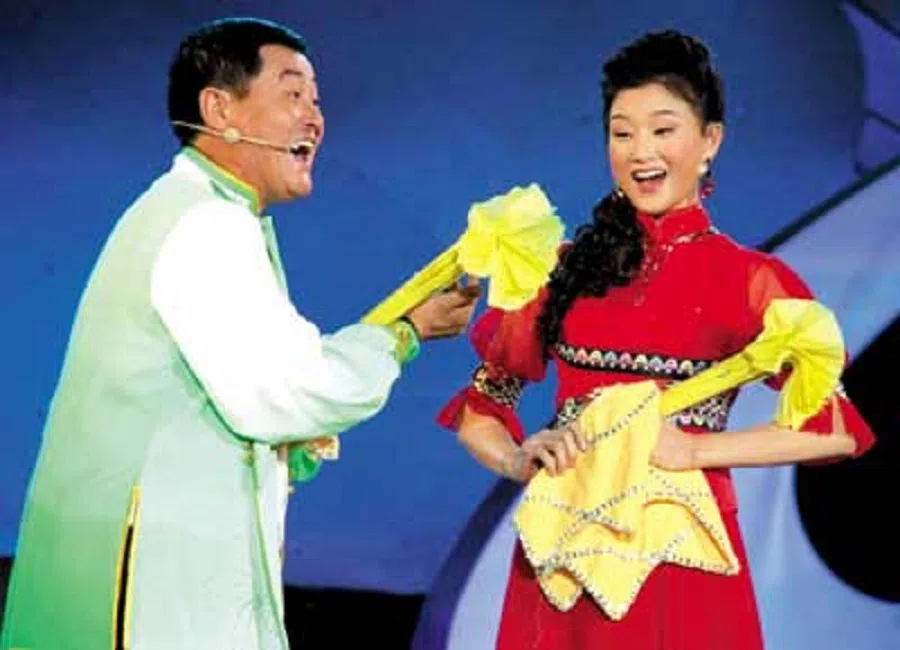Art imitates life: The depressive soundscape of northeast China [Eye on Dongbei series]
Hong Kong academic Dino Ge Zhang explores the regional soundscape shaped by art forms like errenzhuan (二人转) and hanmai (喊麦) in northeast China. He discusses how a sense of ambiguous nostalgia emerged from the tension between declining folk culture and the perceived inertia of a population struggling to adapt to the rise of capitalism since the 1990s.

The cultural imagination of Dongbei or the northeast in the People’s Republic of China has been rather perplexing since the economic reforms in the 1980s.
Disenfranchisement of the socialist proletariat
The utopian vision of the great communist experiment on the political, socioeconomic and natural terrain —where northeast China was positioned as the industrial powerhouse — imploded alongside the disintegration of mega factories and state-owned enterprises, leading to massive layoffs in the late 1990s.
This traumatic experience of being severed from the planned economy was not unique to the northeast; however, it became a defining moment that contributed to a lasting sense of collective lethargy that persists to this day.
This profound disenfranchisement of the socialist proletariat became a foundational trope of the regional narrative in the most prominent works about the region in the past two decades — from Diao Yinan’s Black Coal, Thin Ice to Shuang Xuetao’s Moses on the Plain to Zhao Benshan’s Ma Dashuai.
As Chinese academic Huang Ping writes in a recent treatise on Northeastern literature and the “New Northeastern Writers Group” (新东北作家群), the 1990s are depicted not only as the childhood memories of these writers but, more importantly, as their parents’ pasts viewed through a child’s perspective.
Shrouded in contradictions
The viral success of Ye Lang Disco (野狼 Disco, or “Disco Alaskan Wolves”) in 2019 encapsulates the earlier undercurrents of pessimism and dejection, ultimately transforming them into a celebration of regional “cultural revival”.
The song narrates the story of a laid-off middle-aged worker in the 1990s from the perspective of a younger individual. This era is remembered as being both dreary and glorious: dreary due to the impending collapse of a planned future and the resulting spiritual nihilism; glorious because of the influx of popular culture, a society of spectacle, and a surge of liberated desires — a form of terminal lucidity.
While the northeastern identity was still navigating experimental modernity, it quickly became outdated and stereotyped as a failure, overshadowed by the rise of the neoliberal entrepreneurial spirit.

Ye Lang Disco brings this bipolarity to life, and pushes it to the brim in the simulacrum of internet culture. “My songs are about the decline of the northeast and a desire for rebirth”, Dong Baoshi (Gem), the rapper behind Ye Lang Disco, has said.
The northeast has become a “corpse” of state socialism, standing in stark contrast to the prosperous southeast coastal regions shaped by marketisation. It exists as both an outsider to Chinese modernity and an object of nostalgia.
As observed by Liu Yan, a prominent author of Dongbei history and culture, this contradictory dualism of the northeast — being depicted as a predominantly rural space in television shows such as Ma Dashuai, while simultaneously as a highly urbanised modern society with an industrial working class in the 1990s — is almost never interrogated extensively.
While the northeastern identity was still navigating experimental modernity, it quickly became outdated and stereotyped as a failure, overshadowed by the rise of the neoliberal entrepreneurial spirit.
The folkloric arts such as errenzhuan (二人转, lit. “two people spinning”, a song and dance duet popular in the northeast), and the frequent appearance of regional comedians such as Zhao Benshan on a national stage, can be seen as a way to revise cultural memories and obscure this contradiction.
Ye Lang Disco captures this contradiction, blending the aesthetics of recession and hedonistic nihilism to evoke nostalgia for the northeast’s glory days.
Hong Kong movies an influence
In the music video, Gem adapts a vaporwave sample and opens with a vocal in heavily accented Cantonese that phases into a hanmai (喊麦) performance, accompanied by Aaron Kwok-esque dance moves, slicked back hair, fur coat, set in a disco dancehall.
The tropes of hooliganism in disco halls, as depicted in the video, were neither a direct homage to nor an imitation of Hong Kong underground triad societies in movies such as the Young and Dangerous series. Instead, they serve as a mediation of cultural memories from an earlier generation.
The soundscape of this era is marked by a folkloric blend of errenzhuan and disco, infused with working-class roughness and imagery of Hong Kong triads, as understood through the lens of Hong Kong cinema.

In the 1990s, prior to the 1997 handover, cultural imports from Hong Kong — ranging from Cantopop to cinema and television — flooded China, circulating in video halls (quasi-public spaces for videotape screenings) and disco halls.
The soundscape of this era is marked by a folkloric blend of errenzhuan and disco, infused with working-class roughness and imagery of Hong Kong triads, as understood through the lens of Hong Kong cinema.
‘Shouting [at] a microphone’
Gem is one of the many examples which demonstrates the hybridity and fluidity of cultural production in northeast China.
This ambiguous nostalgia helped shape a regional soundscape, arising from the contradiction between the declining folk culture and the perceived, if not imposed, inertia of its people in adapting to the arrival of capitalism since the 1990s. This stereotype is also characteristic of hanmai’s reputation as the genre is heavily provincialised after its popularity — it was banned, sanitised then reinstated as a staple of the regional culture.
Hanmai, literally meaning “shouting [at] a microphone”, is a lyrical performance that originated in the northeastern spoken word tradition. In its early forms during the late 1990s and early 2000s, these performances were infused with hedonistic desires, often taking place in disco halls blasting electronic music to a restless dancing crowd, or in comedy skit theatres where contemporary spoken word arts were performed along with traditional folk arts.

I would like to see hanmai as a spiritual extension of errenzhuan which in itself was modernised through various experimental intermixing with electronic music, modern choreography, and the reinvention of the dance hall through disco ball.
As hanmai became an influential genre on livestreaming and short video platforms in the 2010s, it gradually morphed into a lyrical medium for venting frustrations due to unfulfilled desires, socioeconomic decline, mass exodus and the gender politics surrounding “inceldom” or the state of being involuntarily celibate.
In addition to film and literature, hanmai also conveys the lingering effects of recession, deeply rooted in the collective trauma of the northeast’s socioeconomic irrelevance and its diminished status within the cultural hierarchy of Chinese regions.
The depressive soundscape of northeast China is not a homogenous imagery. It draws on a diverse array of local and international, historical and present references to mourn a lost future of hypermodernity that never materialised in the region.





